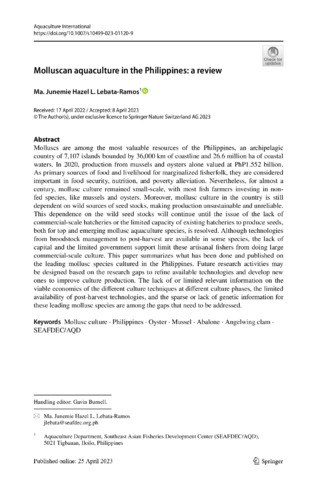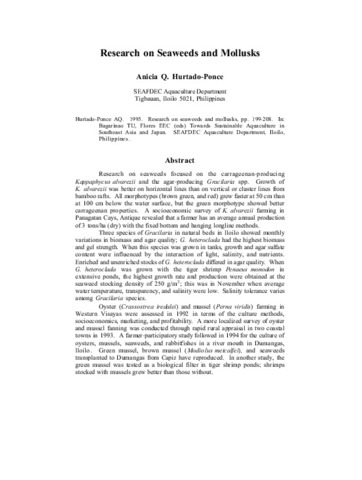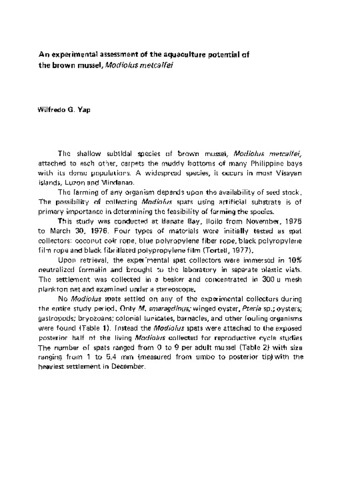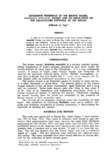Molluscan aquaculture in the Philippines: A review
- Global styles
- MLA
- Vancouver
- Elsevier - Harvard
- APA
- Help

View/
Date
2023-04-25Page views
1,358ASFA keyword
AGROVOC keyword
Taxonomic term
Geographic names
Metadata
Show full item record
Share
Abstract
Molluscs are among the most valuable resources of the Philippines, an archipelagic country of 7,107 islands bounded by 36,000 km of coastline and 26.6 million ha of coastal waters. In 2020, production from mussels and oysters alone valued at PhP1.552 billion. As primary sources of food and livelihood for marginalized fisherfolk, they are considered important in food security, nutrition, and poverty alleviation. Nevertheless, for almost a century, mollusc culture remained small-scale, with most fish farmers investing in non-fed species, like mussels and oysters. Moreover, mollusc culture in the country is still dependent on wild sources of seed stocks, making production unsustainable and unreliable. This dependence on the wild seed stocks will continue until the issue of the lack of commercial-scale hatcheries or the limited capacity of existing hatcheries to produce seeds, both for top and emerging mollusc aquaculture species, is resolved. Although technologies from broodstock management to post-harvest are available in some species, the lack of capital and the limited government support limit these artisanal fishers from doing large commercial-scale culture. This paper summarizes what has been done and published on the leading mollusc species cultured in the Philippines. Future research activities may be designed based on the research gaps to refine available technologies and develop new ones to improve culture production. The lack of or limited relevant information on the viable economics of the different culture techniques at different culture phases, the limited availability of post-harvest technologies, and the sparse or lack of genetic information for these leading mollusc species are among the gaps that need to be addressed.
Suggested Citation
Lebata-Ramos, M. J. H. (2023). Molluscan aquaculture in the Philippines: A review. Aquaculture International , 31(5), 2977-3001. https://doi.org/10.1007/s10499-023-01120-9
Type
ArticleISSN
0967-6120; 1573-143XCollections
- Journal Articles [1262]
Related items
Showing items related by title, author, creator and subject.
-
Research on seaweeds and mollusks
Hurtado-Ponce, Anicia Q. (Aquaculture Department, Southeast Asian Fisheries Development Center, 1995)Research on seaweeds focused on the carrageenan-producing Kappaphycus alvarezii and the agar-producing Gracilaria spp. Growth of K. alvarezii was better on horizontal lines than on vertical or cluster lines from bamboo ... -
An experimental assessment of the aquaculture potential of the brown mussel, Modiolus metcalfei
Yap, Wilfredo G. (Aquaculture Department, Southeast Asian Fisheries Development Center, 1978)A study was conducted at Banate Bay, Iloilo, from November 1975 to March 1976. Trials were conducted using spat collectors of four types, but no Modiolus metcalfei spat settled on any of the experimental collectors during ... -
Settlement preference of the brown mussel, Modiolus metcalfei, Hanley and its implication on the aquaculture potential of the species
Yap, Wilfredo G. (Fisheries Research Society of the Philippines, 1978)A study on the settlement preference of M. metcalfei was made in Banate Bay, Iloilo, using four types of materials as spat collectors. During the six-month study period, not a single Modiolus spat was found in any of the ...







